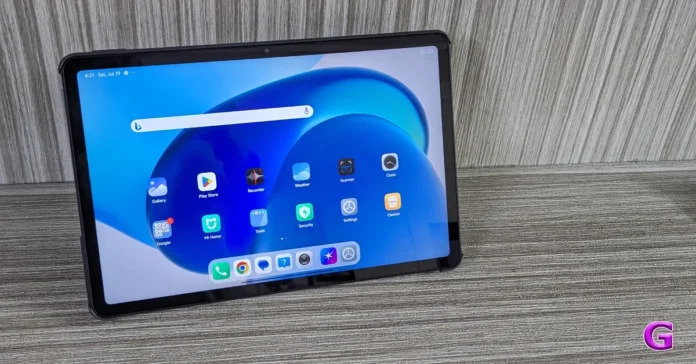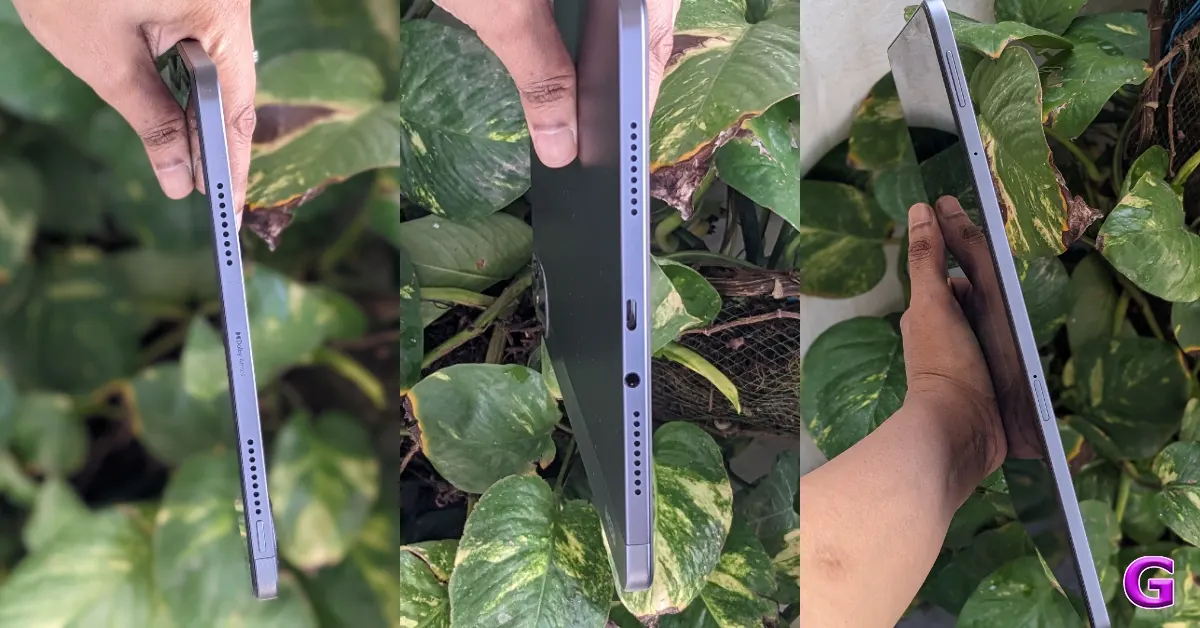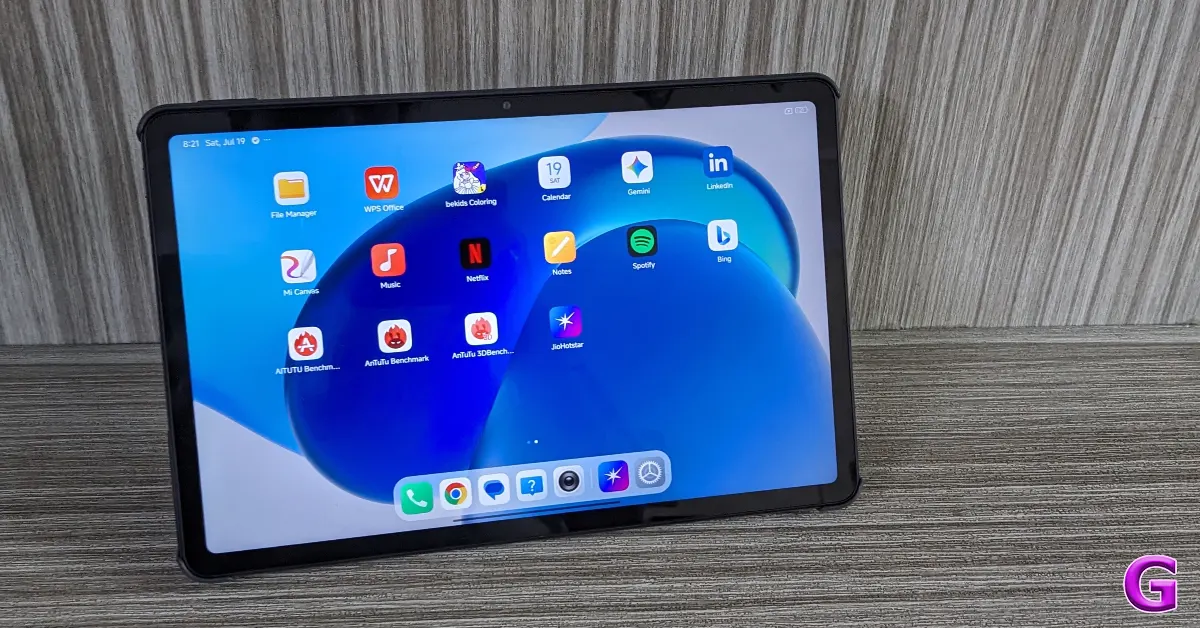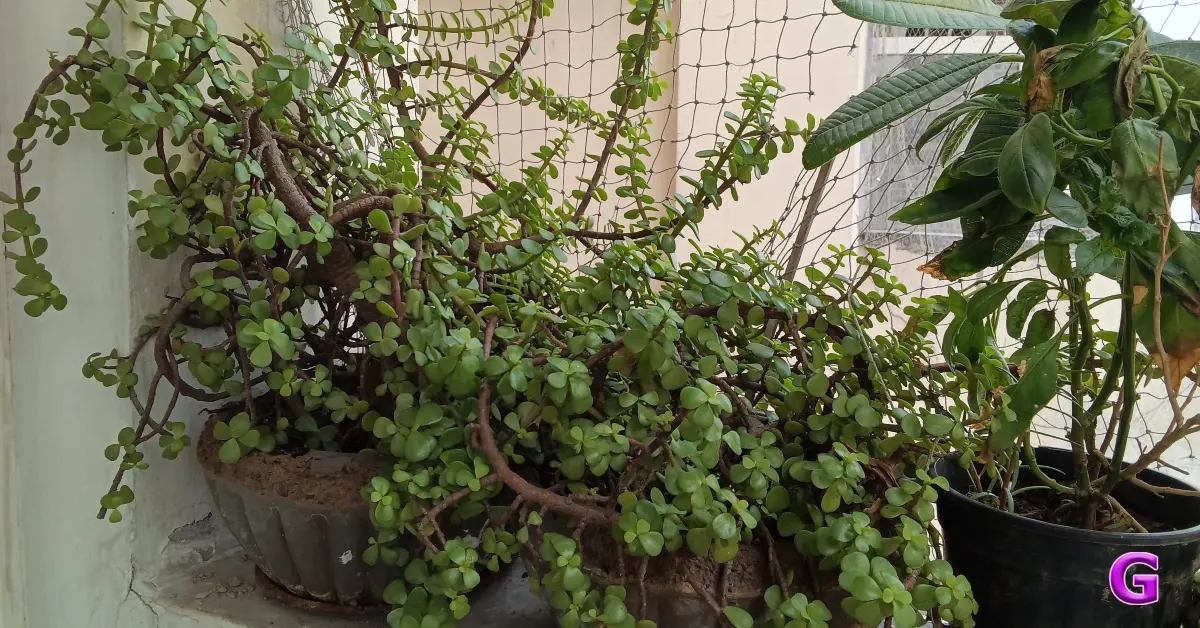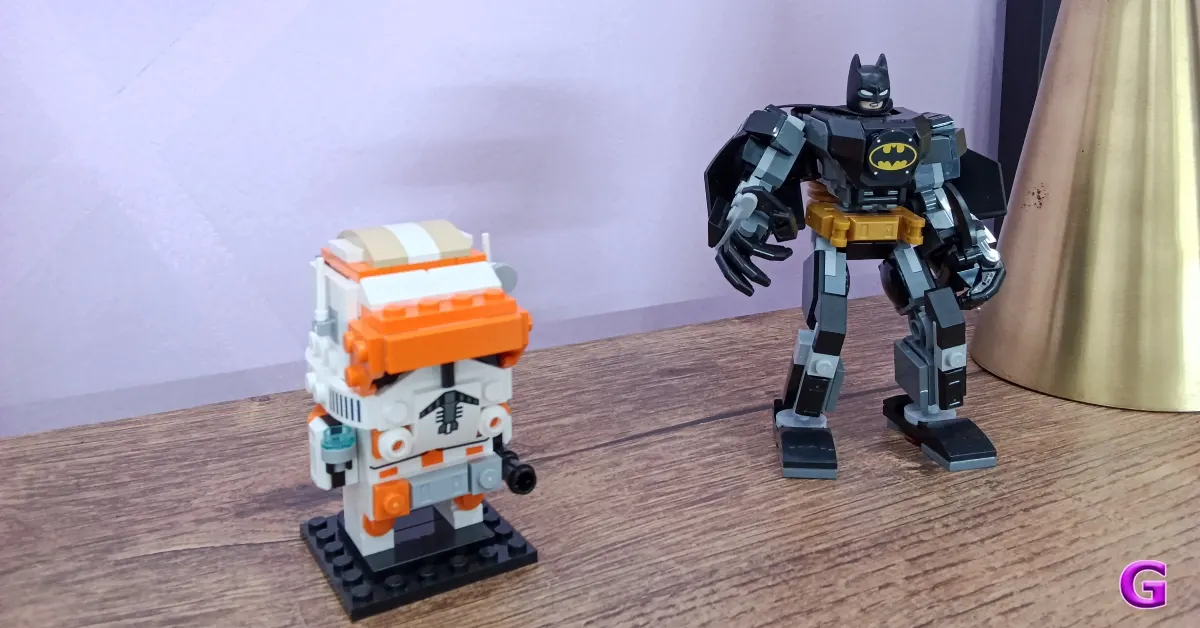Xiaomi’s sub-brand Redmi recently launched a new tablet, the Redmi Pad 2. The tablet is a successor to the Redmi Pad, which was released three years ago and has various improvements. The Redmi Pad 2’s design has been updated, mostly owing to the addition of cellular connectivity and a larger display and battery. We spent a few days with the tablet to find out if it met the expectations set by its specs. Here’s our detailed Redmi Pad 2 review.
In This Article
Redmi Pad 2 Review: Design and Display
Xiaomi has brought support for the Redmi Smart Pen to this tablet, something that hasn’t been common for tablets in this price range. The smart pen, which is an add-on, is quite useful. Additionally, a smart cover is included—it isn’t in the box but has been sent to us by the company and is sold separately. Xiaomi has done a great job on these two points because it is the first company in this price range to provide these accessories.
Coming to the design and the build quality. For the review, we have the Wi-Fi + Cellular model in the blue colour variant. It’s kind of aesthetically pleasing. The antenna bands are most likely the reason for the dual finishing (plastic and metal) and dual camera module positioning that is seen here. The tablet has a familiar and simple design. This time, it features a 3.5 mm headphone jack, which was absent in the last iteration.
For this price range, the design appears quite high-end. You get multiple speakers on this machine. Two at the top and two at the bottom make up for your quad speaker setup. In addition to a Type-C charging connector at the bottom, there is a 3.5 mm audio jack. Next, the volume rocker and SIM tray are positioned on the right side of the frame, while the power button is positioned on top. A fingerprint scanner is not included. Many times we accidentally pushed the volume rocker button, thinking it’s a power button, because the device’s button arrangement is a little odd, it’s placed above the volume rocker.
The Redmi smart pen includes two buttons, a Type-C USB connector for charging at one end, and a small LED light that shows whether it is charging or paired. In contrast, the Redmi Pad 2 Cover is quite simple to look at, but it does protect the tablet.
The device’s broad bezels that surround the screen take centre stage on the front panel. Therefore, the tablet is easy to hold, and there are no accidental touches. They are not as thick as those we see on the majority of other tablets, despite being broad. To utilise the selfie camera properly, one must hold the tablet in landscape mode, which makes sense because most people would want to use it that way when on a video call.
Also Read: Poco F7 Review: A gaming beast at an incredible price
The Redmi Pad 2 boasts a 2.5K Crystal Clear 11-inch display with 1,600 x 2,560 pixels. The maximum brightness of the 10-bit display is 500 nits, and its refresh rate is 90Hz. It features a touch sampling rate of up to 360Hz, a 16:10 aspect ratio, and a pixel density of 274 ppi. The display supports wet touch technology and has TÜV Rheinland certification, too.
The Redmi Pad 2’s display is just amazing, and watching YouTube and Netflix content on it was a true pleasure. The tablet’s incredible display made us much more prone to binge-watching than normal. The visuals projected are crisp and clear, and the colours are vibrant and deep; also, the brightness is just great. Although we believe the refresh rate could have been 120 Hz, 90 Hz is still acceptable.
Our viewing experience was further improved by the device’s quad-speaker arrangement, which supports Hi-Res and Dolby Atmos. Regardless of the volume level, the sound stayed clear and crisp, making the superb sound quality the cherry on top.
Redmi Pad 2 Review: Performance and Camera
Moving on to the important stuff, the MediaTek Helio G100-Ultra SoC is housed under the hood, along with up to 256GB of UFS 2.2 storage and up to 8GB of LPDDR4X RAM. We had 256GB of storage and 8GB of RAM. Switching between applications and keeping more than four running in the background is much easier with 8GB of RAM. The tablet easily handled even the most demanding tasks we attempted to do on it. As anticipated, multitasking was also not an issue.
As previously said, we spent a lot of time on the tablet viewing content from YouTube and Netflix. It is also worth noting that the tablet never warmed up, regardless of how many hours we spent watching videos and series on it. We even used the tablet to play games with demanding graphics like Call of Duty and Asphalt: Legends, and it performed well.
We ran Antutu Benchmark test and the scores are: 3,94,181
Also Read: iQoo Z10 Lite Review: One of the best budget smartphones under Rs 10,000
In terms of software, it comes pre-installed with Xiaomi HyperOS 2, which is based on Android 15. You will need to use face unlock, the traditional passcode, or pattern lock to open the tablet because the phone does not feature an efficient biometric authentication method (fingerprint scanner). The gadget comes with several pre-installed applications that may have been avoided, but you can easily remove them.
Furthermore, as everyone knows, Xiaomi’s HyperOS tablets come with a number of awesome features. Looking at the user interface, you can see that there are additional capabilities included: a floating window and a horizontal app layout. Aside from that, you also have interconnectivity options. So Xiaomi’s connectivity is rather decent. You may connect and manage additional IoT devices and smartphones here. Aside from that, you will find that the customising options include lock-style icons, fonts, and more. You may now listen to regular FM radio by connecting wired earphones.
Overall, it’s a pretty seamless experience, and the UI is well-optimised for that purpose. So we don’t see a problem. Also, if you travel frequently, 4G support would be great on the fly.
This tablet now has AI capabilities like Google’s Circle to Search and Gemini AI, both of which are often seen on HyperOS. The pen input is now also available; you can use the pen to sketch, and the experience with it is fairly decent. Introducing a smart pen at this pricing point is undoubtedly a good step. Although there is some latency, it is rather acceptable for a tablet in this price range.
The smart pen is priced around Rs 3,299, which you can buy separately.
Finally, let’s talk about the device’s cameras.
Since we don’t think cameras on tablets are that important, we’ll be honest and still discuss it. You will find an 8-megapixel rear camera with an f/2.0 aperture and a 5-megapixel front-facing camera with an f/2.2 aperture on the Redmi Pad 2.
If you enjoy taking pictures, they are probably not the greatest ones to use. Because, regardless of the lighting, there is some noise in the pictures. Limiting their use to video calls only and using your smartphone for photos would be a far better option.
As for battery life, the Redmi Pad 2 has a 9,000 mAh battery that supports 18W wired charging; however, the package also includes a 15-watt charger. In our opinion, the charging speed should have been improved due to the large 9,000 mAh battery and the long charging process with a 15-watt adapter. A 45-watt or 33-watt charger would have been preferable.
Redmi Pad 2 price in India starts at Rs 13,999
Buy via Amazon
Also Read: OnePlus Nord 5 Review: The most well-rounded midrange smartphone?
Verdict
The tablet worked well, and it’s an excellent device for reading and making video calls. However, the charging speed could be improved. Those who like to watch videos or YouTube without worrying about battery life or read books while travelling will find the tablet ideal. It is not recommended for those who need a device for photography or videography.
Pros
- Excellent Display
- Smooth Performance
- Long-lasting battery
Cons
- Images are not super clear
- Slow Charging


